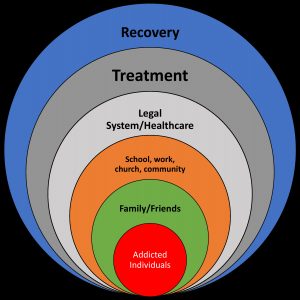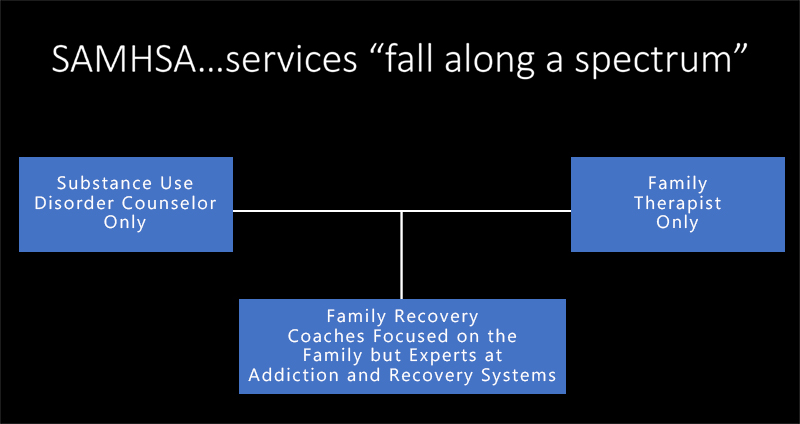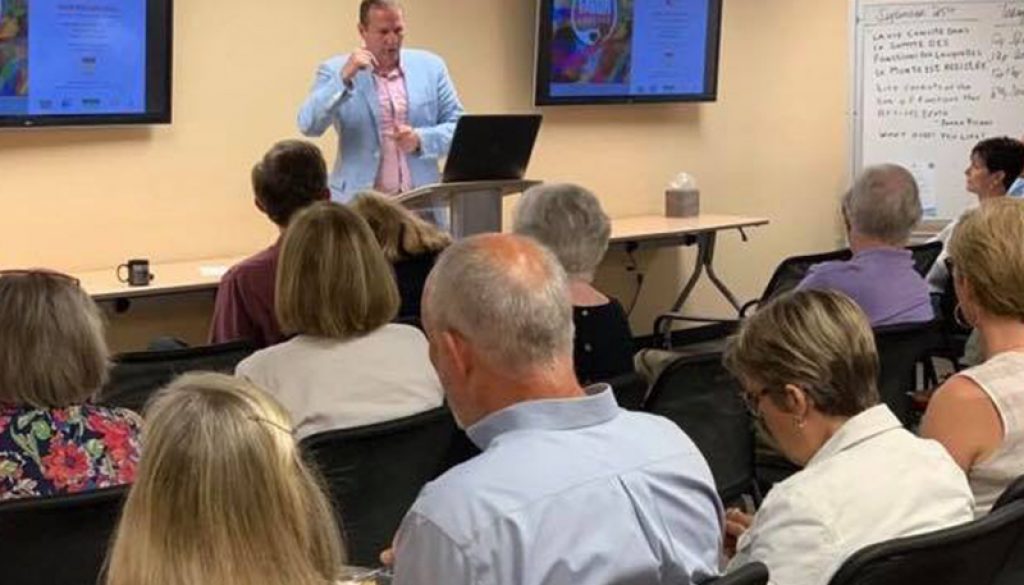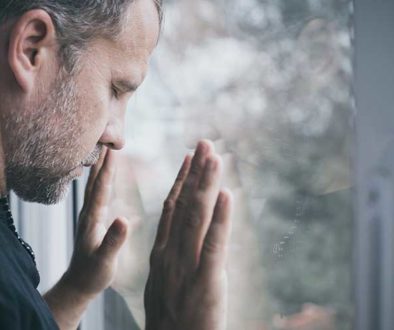Family Recovery Principles
Family Recovery
At the Recovery Cartel we know that, ultimately, the addiction epidemic will be arrested via empowered families and empowered communities. The “experts” will never be able to touch the majority of the addicted in need. You can’t build enough rehabs or recovery centers. The following basic principles guide our family recovery work:
Family Recovery Principles:
- The family is deeply impacted-this is self-evident. Chronic stress, sleeplessness, anxiety, panic, substance misuse to cope, and the related health issues destroy millions of families every year.
- Family recovery stands on its own merit. It is necessary yet has been historically neglected and used as an add-on. Quality family recovery programs exist but they exist mainly in connection to inpatient programs and “pockets” of outpatient clinical providers. It needs to become an easily accessible and affordable option on a more universal basis.
- Family recovery is unique process that should be guided by “family systems theory”. Not limited to traditional avenues of “detach with love” and “tough love”. It is important that professional family recovery services are not a mirror or approximation of Al-Anon family group meetings. Interventions should be individualized to the family.
- Family recovery is primary intervention; not an add-on or after-thought. The Family recovery system should become a feature element of community based programs.
- It should not be dependent on the addicted loved one’s “recovery status”. Family recovery programming should be universally offered. The addicted individual’s recovery status may influence the specific support provided. However, families should have access to professional family recovery support even if the addicted individual is disengaged.
- The family has tremendous power and family recovery contributes to individual recovery. Ultimately, family recovery benefits everyone including the addicted individual. Change one part of the family and you change the entire family.

Furthermore:
1.) We believe that there is merit in family recovery in and of itself. Family members experience profound health concerns when substance use disorders are present. These include chronic stress, physical problems, sleep difficulties, depression and anxiety. Even if the person suffering with a substance use disorder never makes a change the family deserves special focus and support to deal with these issues.
2.) The family has tremendous power that can be harnessed and focused in a way that increases the likelihood their loved one will seek recovery. Frequently, when family members start to change the person with a substance use disorder will start to change. Family systems theory tells us that if you move one part of the family you move the entire family. Like a mobile above a baby’s crib it is impossible to move one part without impacting the whole.
3.) Family members are frequently the first point of contact in the process of recovery initiation. Family members constitute a more willing customer base. They will call for information and options well before their loved one darkens the doors of our center. They are open to feedback and, in many cases, begging for information and options. Therefore, FAVOR Greenville sees the family as a ready-made channel for engagement of those in need.
4.) Family recovery coaching is a unique discipline and the shared experience of families in recovery can be capitalized on in a manner consistent with basic peer support services.
FAVOR Greenville:
With these principles in mind the Cartel’s flagship program FAVOR Greenville started family programs in 2013 with a simple open “Family Recovery Group”. The group was modeled on basic group facilitation processes of universality, mutual support and mutual respect.
Our initial group attendance was 12 people. We held these groups every Monday night at 6:30pm. The group exploded in attendance based nearly entirely on word of mouth. Currently, this group averages 54 people per week with a high this past month of 103 people in attendance. The group has become more didactic and educational in nature. However, we start each group with questions from the week and we make sure the topic of education/discussion is generated by the group.
There are usually 10 to 15 new people at group and an equal number of “veterans” who have been in attendance since the group started. Over time an interesting phenomenon arose. The group was intended for any and all family members. Spouses, children, siblings and parents together in one group. However, the group quickly morphed to 90% parents.
S.O.S. (Significant Other Support):
In response to this we developed our second family recovery group. Every Thursday night at 6:30pm we hold our S.O.S. (Significant Other Support) group. This group focuses on spouses or adult children. Also, this group has a different tone than the parent group because the dynamics are different spouse to spouse versus parent to child. This group has operated for 2 years and average meeting attendance of 10 to 20 people.
Finally, we have just added an offsite Family Recovery Group in our neighboring town of Spartanburg SC and Laurens County as well as a group in the Nicholtown area. Many more locations are slated for the upcoming year.
Family Recovery Coaching:
Another distinct area of family recovery support at FAVOR Greenville is our family recovery coaching. These are parent to parent; spouse to spouse; family to family coaching relationships put in place to supplement the various groups provided at FAVOR Greenville.
We actively recruited family members who had been “working a recovery program” and developed a specific curriculum to supplement our regular coach academy. These family members completed a specialized training academy to become FAVOR Family Recovery Coaches.
To date we have trained 53 family coaches and currently have 29 active Family Recovery Coaches who volunteer on average 5 hours per week to coach and support other families. We have been over-joyed with the Family Recovery Coaching programming. We have provided over 8,000 hours of family recovery coaching since initiating the program. The family coaches are incredibly enthusiastic and grateful and this is reflected in the way they engage our families in need. This has been magical to watch.
Finally, we offer intervention services to support the family in crisis. We have 2 ARISE interventionists on staff and have completed over 50 interventions to date. We are in the process of developing a second tier of interventionists to address this area of need. The number of interventions have risen dramatically over the past 1 and half years and we need more support to respond to the needs of the community.
Cornerstone of the Center:
Overall, it is important to note, 48% of the service hours delivered at FAVOR Greenville are delivered to family members in need. The distinct difference with our program is the following: Family recovery is not an add on or adjunct to service; family recovery is front and center and a cornerstone of the center. We have found that family members want to be included in the process and they make great volunteers and supporters.
FAVOR Greenville will continue to place formal emphasis on family recovery and we believe our program will expand in the area of family recovery as we move forward in our mission.
This isn’t theory for us… this is real life practice.
A Unique Perspective:
My experience in launching these family programs at the FAVOR Greenville Center has given me a unique perspective on the process of family recovery. I have seen the reality of family recovery. Recovery as it is lived out by the family. parents, spouses, siblings and friends of the person struggling with a substance use disorder. As is the case with many things in the “addiction treatment” industry much of what is done for family recovery springs out of long held views. These views are ingrained in our thinking. Although these approaches may work very well for any given person; their perceived effectiveness is based largely on anecdotal evidence.
Of course, there are good clinical programs and clinicians working with families. There is good work being done in the traditional family groups. This is not about isolated success. This is about an approach that could be scaled in a realistic manner and touch millions in need. On its most practical level, it is about finding and training a workforce that can deliver family services in a cost-effective manner on a wide scale.
This will be difficult to accomplish via traditional clinical routes. Family clinicians may be the ideal answer. If all families could be involved with a licensed Marriage and Family Therapist that would be wonderful. However, that is not realistic. The expenses would be prohibitive. In addition, we are not even close to having a sufficient number of clinicians.
What is a realistic option?
I am of the opinion that this can best be accomplished by developing family recovery coaches. This is an eager, enthusiastic, bright, and teachable group. They are hungry for information. By blending the experiential with professional training and supervision we will build that workforce. The Substance Abuse Mental Health Services Administration (SAMHSA), in their TIP on Substance Abuse and Family Therapy lays out the following continuum as a guidelines.

Family Recovery Coaching Requirements:
Family members must have the ability to articulate their own personal pathway of family recovery. Their process should be consistent and they should be able to reliably manage their own recovery plan. Family coaches will be interviewed and approved by the executive director and will perform duties under the direct supervision of our executive director.
Specialized training hours will be offered for family members. These areas of specialization will be described in detail later in this manual. We anticipate that we will have participants who meet qualifications to do both individual and family recovery coaching. They will be trained accordingly. Primacy of one discipline over the other is the decision of the coach, in consultation with the executive director. Performing both roles is also an option.
Family recovery coaching requires a baseline understanding of recovery coaching and peer recovery support services. The organization should make sure that their candidates have that baseline knowledge, or ensure they acquire that baseline knowledge through training and supervision. If a person meets the requirement of this fundamental base the family specialization will require 16 hours. We also recommend ongoing technical assistance and a tight supervision package as family recovery coaching is a high impact profession.




